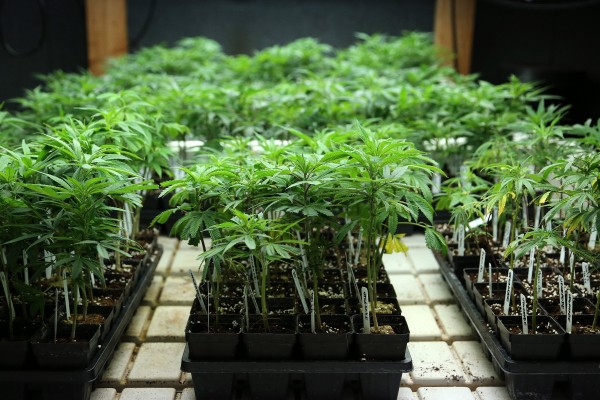Obama Can Survive Marijuana Legalization
February 12, 2014

In President Barack Obama’s Jan. 27 interview with the New Yorker, he let slip that he believed marijuana is no worse than alcohol. The interviewer then prodded him, asking if the drug is, in fact, less dangerous. After a pause, he reluctantly answered that he believed it is, but only “in terms of its impact on the individual consumer.” Obama’s aversion to talking about the drug has been noted, and I think that to this day, it is difficult to paint a clear picture of which side he’s truly on. Part of this is because Obama’s interest in this issue doesn’t lie with some deep-seated investment in the drug itself, but rather in the issues that arise with it being illegal.
In fact, Obama’s opinion of the drug has been ambiguous at best. He has made it clear that he neither supports nor condones marijuana use, telling the New Yorker that, “I smoked pot as a kid, and I view it as a bad habit and a vice, not very different from the cigarettes that I smoked.” In other instances, he has implied—but not explicitly stated—that he believes marijuana should be placed in a category separate from some of the most dangerous drugs in the world, like cocaine and heroin. However, we haven’t seen a direct statement from the President that could place him in the role of whole-hearted advocate or vehement opponent.
This, I think, is what will protect his image if there are any legal developments concerning the drug in the future. Obama may have the majority of the population on his side when it comes to the legalization of marijuana, but as with all touchy issues, there is a small but vocal minority that opposes him. While a CBS News poll released in January 2014 showed that a record 51 percent of Americans believed the use of marijuana should become legal, we cannot forget the opposing group, which, contrary to popular belief, is not only comprised of right-wing politicians and religious organizations but also includes influential medical institutions such as the American Medical Association (AMA).
The key for Obama to pass a bill legalizing marijuana and to escape without a huge hit to his approval ratings is for him to focus on hard-hitting issues. Contrived arguments such as the claim that marijuana is no more dangerous than alcohol and tobacco—while true—won’t work here. Comparing marijuana to these substances is a pathetic, and frankly ridiculous, statement. Just because alcohol and tobacco (two extremely dangerous drugs) are legal, it does not mean marijuana should be as well. In his New Yorker interview, Obama tried to steer clear of this trap by conceding that marijuana may well be less dangerous than alcohol but only for the individual consumer. However, that didn’t stop major news sources like CNN from publishing articles that monopolized on the former half of his statement without taking the context into consideration.
Obama has already voiced his concern for the disproportionate number of arrests among minority offenders, one of the truly important social problems that marijuana legalization will alleviate. He is supported by evidence from a June 2013 American Civil Liberties Union (ACLU) report, which states that African Americans are 3.7 times more likely than whites to be arrested for marijuana possession, despite the rates of marijuana use being relatively equal among both groups. And in New York, one of the few states with data on Latino arrests, Latinos are arrested at four times the rate of whites. Following this is the issue of our notoriously overcrowded and expensive prisons. When we consider the fact that marijuana is not a gateway drug and that there is little evidence to support the claim that it is connected to criminal activity, it seems ridiculous to lock up men and women whose only crime is using the drug. If anything, a rehabilitation center is a much smarter choice than a jail cell for many of these drug users.
Marijuana legalization is a tricky issue, but Obama is doing a great job of sticking to what matters, while at the same time clearly establishing that marijuana is not the natural panacea that many make it out to be. The harsh penalties and unfair sentences associated with marijuana use are the issues that truly plague people, and while reforming the marijuana law is a step towards fixing them, we have to recognize that it is still a dangerous drug. If Obama is persistent not only in his dedication to the social justice problems arising from the drug but also in his statements that he does not approve of its use—at least recreationally—then he should be able to pass a legalization law while antagonizing as few people as possible in the process.












rger eregr • Feb 13, 2014 at 9:55 pm
Marijuana is less dangerous than advil pills and less addicting than coffee :p